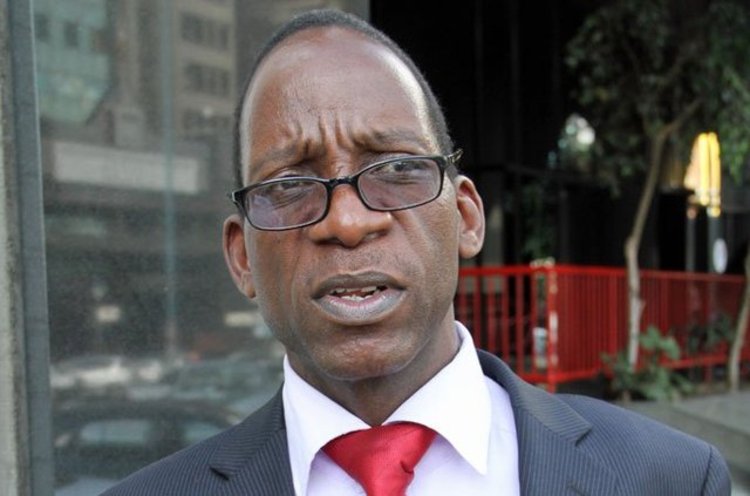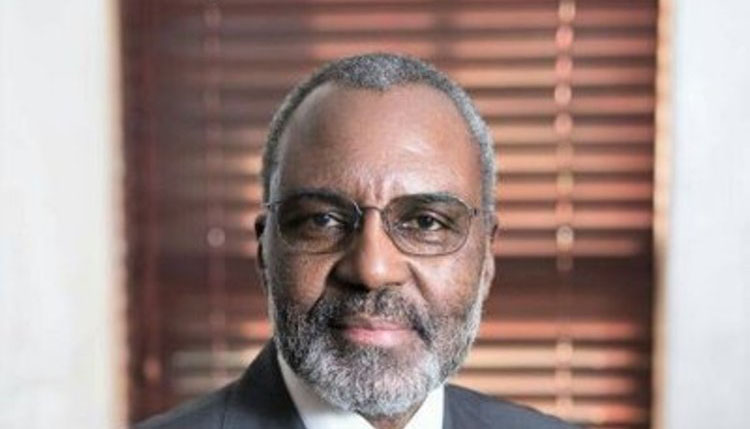
The Sunday Mail

MAYBE heroes don’t exist. George Martin, that American writer put it more bluntly: “There are no heroes…in life, the monsters win.” One can justifiable add that the monsters don’t just win, but they make sure that the real heroes have no history and no identity. If they are not busy destroying the heroes, they are busy trashing their struggle.
Last Wednesday night my heart sank, as I watched and listened to the election debate, “The Elected Debate” on the programme, Straight Talk which was being broadcast by the Voice of America in conjunction with the Zimpapers Television Network. The speakers on this programme comprised Dr Nkosana Moyo, Mr Tendai Biti, Ambassador Chris Mutsvangwa and Professor Lovemore Madhuku with the moderators, Ruvheneko Parirenyatwa and Shaka Ssali. The presenters spoke about a lot of issues, some totally unnecessary such that the programme almost turned into a “confined rally” but what really left me crushed was the following conversation between the speakers.
“Dr Moyo: I would like to respond to Ambassador Mutsvangwa on the issue of war veterans. I think this thing is so painful for most Zimbabwean families. Most Zimbabwean families lost people in that war and they came back, a lot of our relatives did not come back. They keep going on and on as if they own the war. I thought it is regrettable, totally unbelievable that they go on the way they do.
The war veterans that are alive and back here, taking care of themselves and claiming monopoly over the revolution are totally misguided. This whole nation went to war, they know that. Most of the people did not come back and they are not reaping the benefits that they are monopolizing today and I thought it is unforgivable that they are doing what they are doing. They ought to be more humble to understand they are lucky because they came back, a lot of our relatives did not come. I think it is so unacceptable that are doing what they are doing today. They have hijacked the revolution, and they are lucky to be alive. We lost relatives who we have totally forgotten and the revolution has been hijacked.
Ambassador Mutsvangwa: Plain hogwash! Plain hogwash! He is my generation, equally smart as I was. He never made it to that war. I went through that war. I was a university student. I know the people who died. They were my colleagues. He is now trying to speak on their behalf when he was a coward. This is unforgivable. You do not speak about an issue that you did not participate in when you had reason to participate, period! And anybody in this room can howl whatever, whichever way you want. You did not participate. Give those who participated the prerogative to talk about it. People were organised by the war veterans. It was a painful exercise. It was death every day of my life. And I am now being given lectures by people who were not in that war. I will not accept it. In case it is not going to be repeated, it is not like going to school and say I will repeat another class. It was done.
Prof Madhuku: I absolutely agree with what Dr Moyo said. I think it is important that we emphasize that this country is not everyday about the liberation struggle. That phase is over and if there was any reward to be given, 38 years would be enough. It is very important that we get that we are not the only country that had to be liberated from some struggle, every society has fought a war, every society has fought injustice, and every society has fought oppression. It is this society only where those who believe they fought injustice …
Mr Biti: I agree with my two colleagues, Dr Moyo and Prof Madhuku.
It is a tragedy that my colleagues like Chris Mutsvangwa are still fighting a war that finished 40 years ago. That we are beholding to a past and that past a basis of entitlement, a basis of impunity, a basis of this strong messianic complex that they hold. ‘That we liberated you’. And we say at our public meetings; ‘If the abuse we suffer by those who claim to have liberated us get to the debasement of our country in the manner that they have. We cannot allow that. So sometimes we say “guys, you old people, please take that country and go and tie it so that our own generation can go and untie it. We are tired of this.”
Sitting in the same room, watching and listening to Dr Moyo, Prof Madhuku and Mr Biti demeaning and belittling the liberation struggle and those gallant sons and daughters who sacrificed their lives to free this country, my adrenaline pumped.
For Dr Moyo, the war veterans “keep on going as if they own the war” and they are “totally misguided.” Really? For Prof Madhuku, he sees the liberation struggle as a “phase that is over” and “if there was any reward to be given, 38 years would be enough.” Is that so Prof Madhuku? And for Mr Biti, the liberation war “finished 40 years ago,” and dear God hear this learned lawyer shoving the knife down, “guys, you old people, please take that country and go and tie it so that our own generation can go and untie it.”
I have always known that some Zimbabweans have no respect for the country’s war veterans and they think the liberation struggle belongs to the past, but to be honest, I never thought learned people would hold such demeaning views. And that these learned people would find nothing wrong in speaking openly about such things.
Over the past seven years, under the column, Chronicles from the Second Chimurenga, I have interviewed more than 100 former fighting forces from the liberation struggle, I have interviewed victims of that liberation struggle and I have spoken to families still being tormented by that liberation struggle. What Dr Moyo, Prof Madhuku and Mr Biti said is just inhumane, insensitive and outright barbaric.
Normal people would apologise, but then these are students of early nationalist historiography by former nationalists who glorified the “Self” and “Othered” these former fighting forces. Ndlovu-Gatsheni and Willems (2010), correctly observed that after the attainment of independence there was a sudden interest in the use of “auto/biography as the lens through the making of history, identities and even imaginations of the nation.”
Besides this one-sided nationalist historiography, Robin (2006) noted that the early academics produced “praise texts” as they had turned themselves into “willing scribes of a celebratory African nationalist history that profoundly shaped accounts of Zimbabwe’s liberation struggle.” Furthermore, Robins (1996) wrote about “willing commissar intellectuals who helped produce official nationalism as they served nationalist power instead of critiquing it.”
Dr Moyo, Prof Madhuku and Mr Biti are students of this one-sided historiography that “self-praised and self-presented” nationalists like former President Mugabe, the late Vice President Joshua Nkomo, Edgar Tekere, Jason Moyo among many others as the owners of the liberation struggle. That one-sided history “Othered” and ignored the narratives of the former fighting forces from the liberation struggle.
From the perspective of this one-sided history, the liberation struggle was fought by nationalists who were stationed in air-conditioned offices in Lusaka, Zambia and Maputo, Mozambique. The fighting forces who directly engaged with the Rhodesian forces on the ground, didn’t exist or if they existed, they were there as supporting acts to the dominant hegemonic discourses by the former nationalists.
This is the tragedy of Zimbabwean historiography and due to this, one can forgive Dr Moyo, Prof Madhuku and Mr Biti for thinking that the liberation struggle belongs to the past and for looking down upon the fighting forces from that bitter war. They are students of flawed history. Students of what Brynes (2012) refer to as “Big History,” that glorifies the planners of the war and not the executors of the war.
Through the over 100 interviews that I have conducted with these former fighting forces, I can boldly tell Dr Moyo, Prof Madhuku, Mr Biti and other like-minded Zimbabweans that the liberation does not belong to the past and that war veterans are not misguided. They are the most humble and thoroughly understanding people in this country.
A few excepts from some of the interviews will help hammer my point home. When I asked, Comrade John Munodawafa Gwitira whose Chimurenga name was Cde Kenneth Gwindingwi whether he has any regrets that some Zimbabweans look down upon war veterans he said: “No, not really because nyika yacho takaitora. These other things about the disparities of wealth and all that, these are things that happened tasunungura nyika yacho. No one can stop me now from going anywhere I want in Zimbabwe. Zvimwe zvese zvakuitika its human nature.”
Comrade Noel Museredza whose Chimurenga name was Cde Ignatius Dzvotsvotsvo responded to my question about people saying “endai munosungirira nyika kwamakaisunungura?” saying: “Iyoyo imhepo. I don’t even listen to such people. That is actually one of the reasons why we were not willing to talk about the liberation struggle…We realized that some people were not willing to listen and we said we will die with our stories. Talking to people who don’t believe zvinoita kunge tiri kutaura nonsense. Zvinoita kunge taiita firimu but no, people died and people were injured. Panorira pfuti panofanirwa kufiwa kana kurarama. It’s those two things. Pfuti haingochemi kungoti pfoo!”
Despite being looked down upon, Cde Dzvotsvotso said he remains a happy man: “I am happy that we fought the war and got our country back. What is unfortunate is that as war veterans we are not given the respect we deserve. Some people actually think war veterans marombe. Handisi rombe ini. It’s unfortunate some people will never know about our sacrifices. But I know that someday in future, people will really appreciate us and they will respect us.”
But then it’s not only these former fighting forces who up to this day are still being haunted by incidences from the liberation struggle. The families of those who participated in the war are still having sleepless nights. Two families that quickly come to mind are the Muzarugwi and Kanyera families. Their family members, Cde Tinzwei Goronga and Cde Jani Musungwa perished in an ambush in 1979. When Tete Muzarugwi (sister to Tinzwei Goronga) and Mukoma Huckson (young brother to Cde Jani Musungwa) visited The Sunday Mail about a year ago and narrated their story, I discovered that for some people, the liberation struggle is still raging on.
When I asked Mukoma Huckson whether as a family they had conducted any ritual after being told that Cde Jani Musungwa had died during the war, he responded: “Yes, we did. Takaita zviya zvekusutsa guva. Ndakatsvaga dombo ndikanyoresa zita remukoma wangu mushure mekunge taviga musoro wembudzi. I remember on this day some comrades came and sang that song yavaiimba kana comrade ashaya, yekuti “Moyo wangu watsidza kufira Zimbabwe.” It was a touching moment but we were burying musoro wembudzi…
“Later we took mwana and showed him this grave. He then asked us kuti ko, baba vangu vakazonotorwa here zvamuri kuti iri ndiro guva ravo. We told him what we had done and he said saka musoro wembudzi iwoyo ndiwo baba vangu here? After conducting this ritual, we started having many problems in the family…
“Kana mweya wenyu mukoma uchinzwa zvandiri kutaura in the spiritual world, iniwo semuranda waMwari ndakamira pachigaro chesimba, ndichitaura nemuzita raJesu Christu, ndinoti mweya wenyu mukoma must fight and open all the doors and remove all the obstacles that are hampering kuti musauye kumusha…I won’t rest mukoma till you come home.”
When the full story of pain, torture, blood, death and trumatic dreams from the liberation struggle by the former fighting forces is told, people like Dr Moyo, Prof Madhuku and Mr Biti will chew their toxic tongues.






